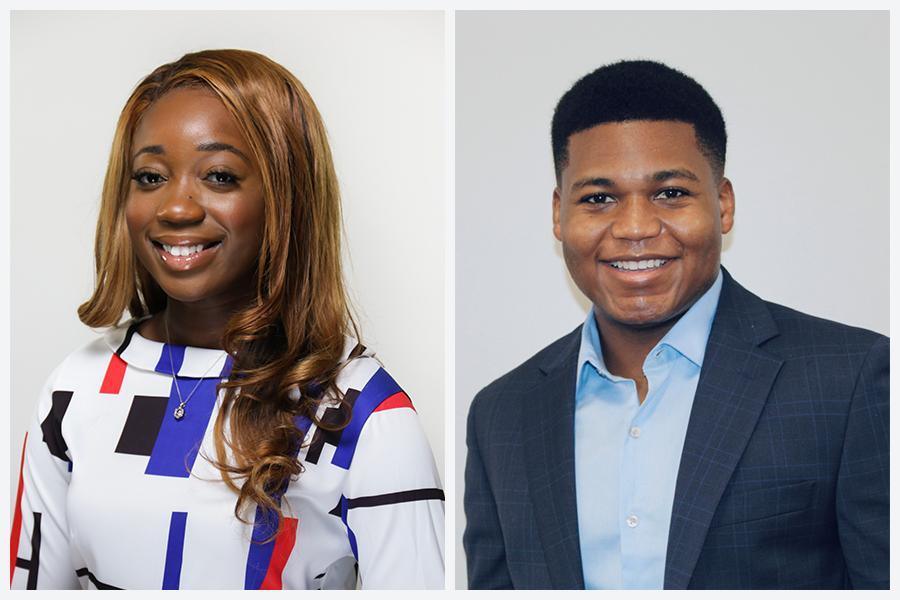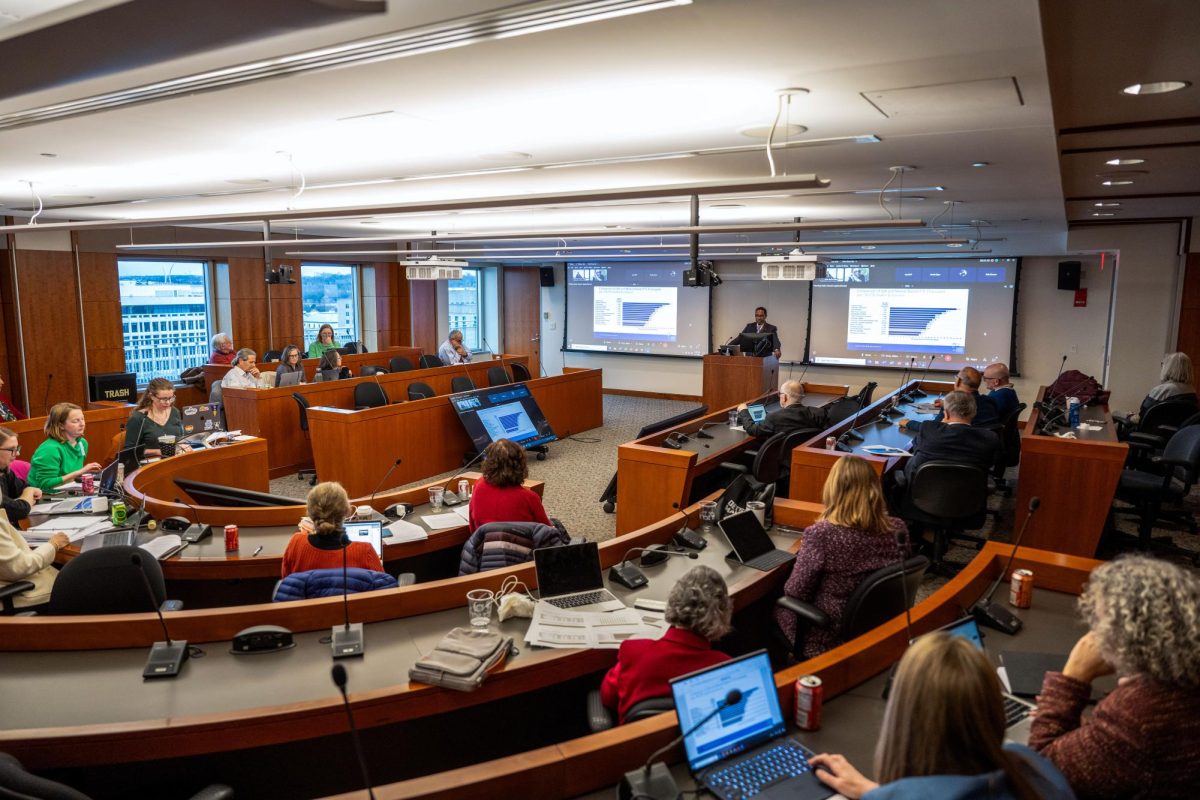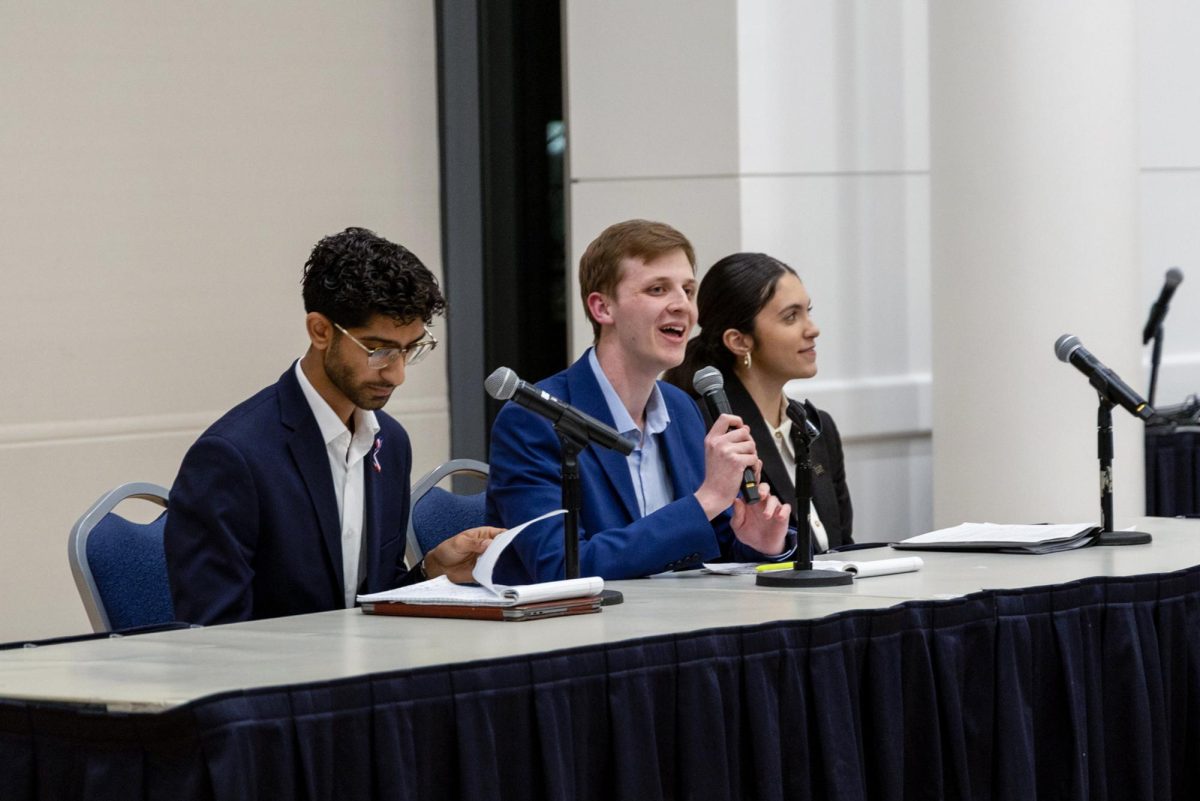Incoming executive board leaders of the Black Student Union said they plan to increase collaboration with multicultural student organizations and increase their campus presence in the year ahead.
BSU President-elect Gianna Cook and Executive Vice President-elect Tony Peeler will kick off their term April 28, following a year in which leaders revamped advocacy and community building with new initiatives like “Black Power” conversations with other Black organizations at GW to promote collaboration on campus. Cook and Peeler said they plan to rename BSU’s general body meetings as “fellowship nights” to engage members and “recenter” the group around the Black community.
“We’ve all endured a tough year,” Cook said. “We’ve all suffered loss in some form or some way, and my goal is to be as transparent as possible and make sure that people feel that they have resources and one another to come to on campus.”
Cook said she hopes to continue initiatives that BSU established this year, like the Big Brother, Big Sister Program, which pairs freshmen with upperclassmen who share similar majors and interests to foster community. She said she also plans to continue BSU’s Rethinking D.C. Project, which leaders started last June to monitor Metropolitan Police Department practices and drive down youth arrests.
She said the incoming e-board will continue to actively monitor racism and microaggressions on campus through the director of advocacy position and will educate those from all identities on Black culture.
“We have such strong momentum in those areas – people being interested and just general education,” she said. “Especially with this year of police brutality and all these things going on, there are resources where everyone can be aware, so no one doesn’t know.”
She said members want to continue to partner with other Black and diasporic organizations at GW, like Black Girl Mentorship and the Multicultural Business Student Association, to grow the organization’s presence on campus.
“That will make our presence known because one of our tenants of GW is diversity and inclusion,” she said. “It’s not just enough to just go within your own community but branch out with the other marginalized and minority communities.”
Cook said she hopes to hold “truth circles” with administrators to discuss past “discrepancies” and improve trust between BSU members and top officials.
“The University has made it clear that they want to improve and stick by the Black community in light of the past year we’ve had of protests, addressing police brutality, college scandals, and I intend to hold them to their word,” she wrote in an email.
Cook said she looks forward to working with other e-board members to continue to foster transparency, communication and a strong sense of community.
“I’m just looking forward to a great year,” she said. “I’m really excited. We have an amazing e-board with so many great candidates, and I think that we’re going to do a great job. Like I said, I’m just really excited. I heard everyone’s ideas and plans and, GW, just get ready.”
Peeler, who also serves as a Student Association undergraduate senator for the Elliott School, said he hopes BSU implements more social occasions like networking events and cookouts when students can attend in person, so members get to know each other better.
“Community building is really important to me,” Peeler said. “People are, to put it in the best way, socially starved for one, and they’re dying to get back to campus.”
He said he hopes to continue events like BSU’s DMV “meet and greet,” during which students from BSU chapters at schools in the DMV area participate in games and team-building exercises to get to know each other.
“I got to meet people in D.C. that I’d never met before because we had an influx of freshmen but also who went to other schools and saw what they did with their BSU, how they’re creative as well, was a really great experience for me, and I’m sure dozens of others,” he said.
Peeler said while serving on the SA’s Black Senators’ Caucus, he connected with members of other newly formed caucuses in the SA. He said he hopes to build a relationship with caucus leaders and Black organizations to revamp BSU event promotion.
Peeler said officials should respond more proactively to improve the Black experience instead of just previously taken “reactionary” measures to harmful events on campus, like the resignation of a professor who lied about her racial identity.
He said administrators were apt to listen to BSU after the killing of George Floyd spurred Black Lives Matter protests last summer, and he wants to continue that communication. He said BSU should hold officials responsible for improving the experiences of Black students at GW.
“It shouldn’t have to be BSU always reaching out,” Peeler said. “I feel like the administration should pay more attention to what we want in our concerns, because we have to live this life and we go through our thoughts every day. We go through our organizations every day, and we know what’s going on, but administration sometimes I feel has a distant relationship with that.”
Peeler said although BSU hopes to host events in person next year, the group will also offer a virtual component via Zoom for each in-person event they host. He said BSU leaders hope to give as many people as possible an opportunity to participate even if they are not comfortable meeting face to face in light of the COVID-19 pandemic.
The organization will also send out weekly emails and newsletters so virtual students can keep up with the latest events, he added.
“We want to make sure that everyone’s able to participate and be involved,” he said. “So I’m really excited, our e-board is great, we have a great president, and I have no doubt this year is going to be one for the books.”








